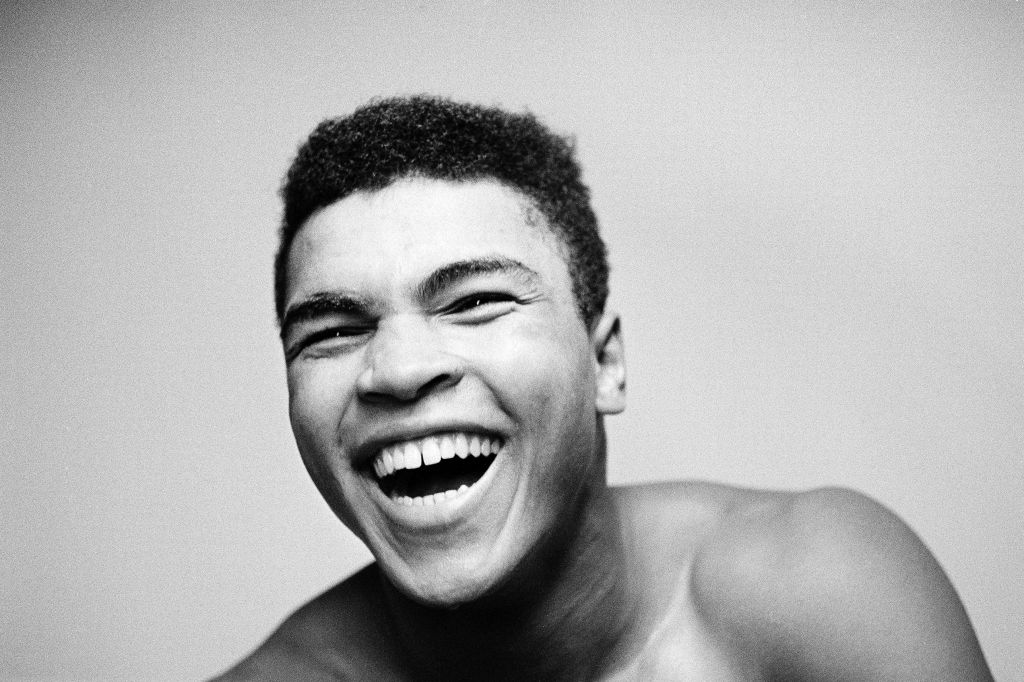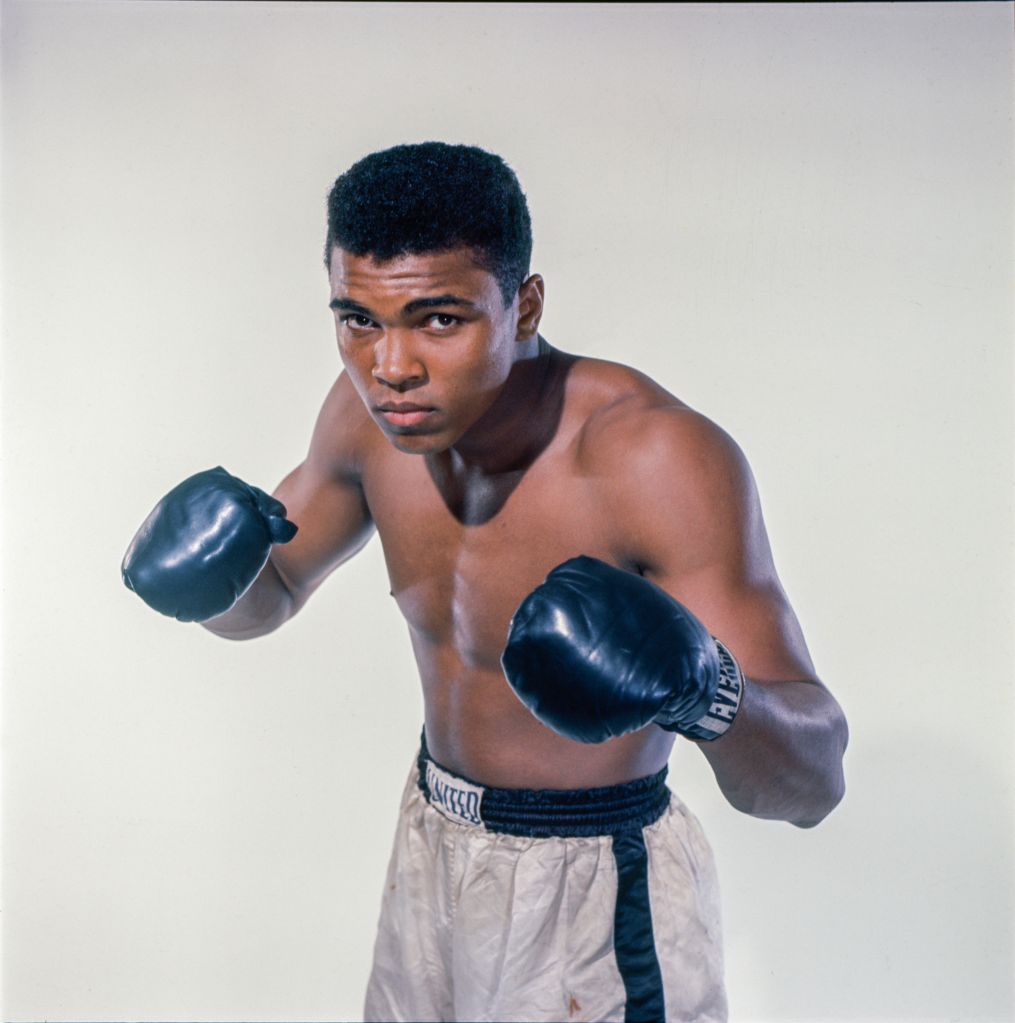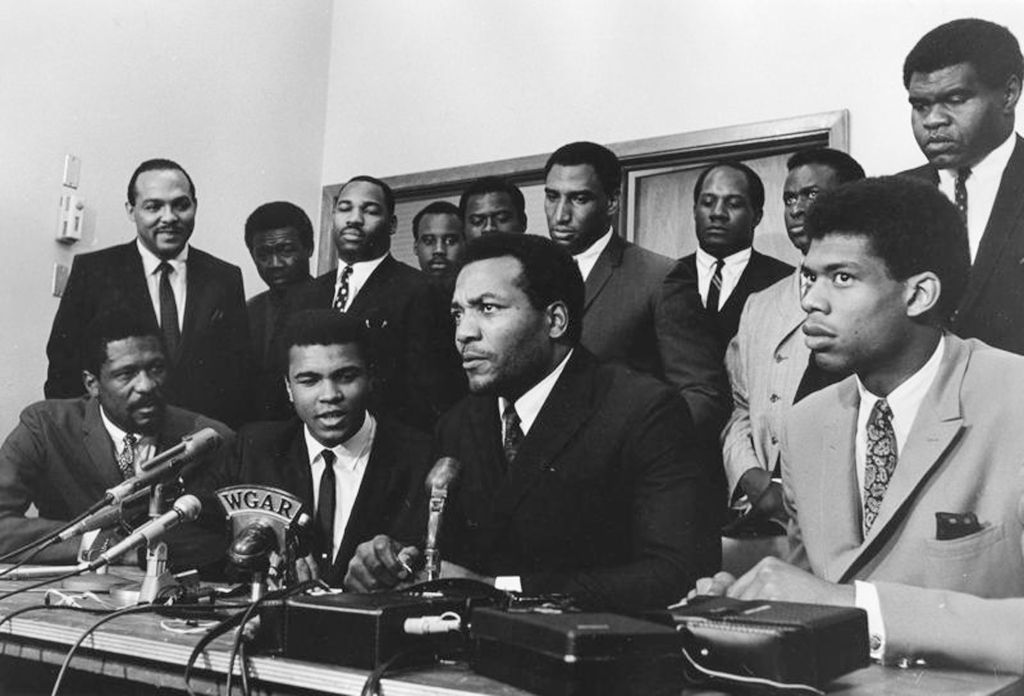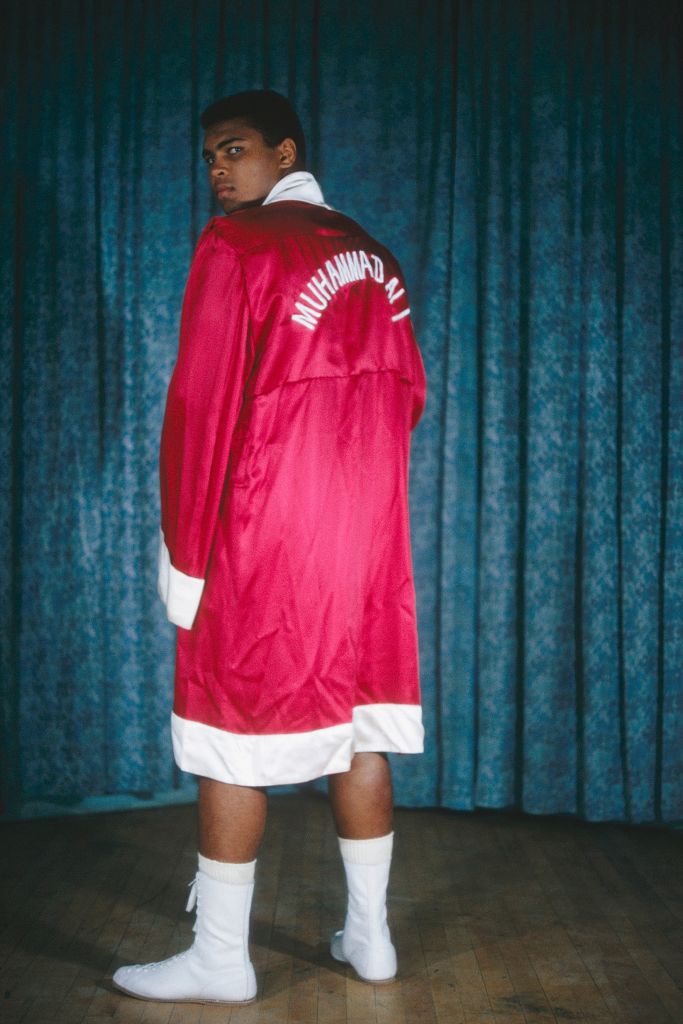
Source: The Stanley Weston Archive / Getty
On this day last year, when Muhammad Ali died at the age of 74, his friend and veteran sports journalist of the Newark Star Ledger, Jerry Izenberg summed up the boxing legend, and what he stood for, perfectly:
“The people. With Muhammad Ali, it was always the people. It didn’t matter whether they were rich or poor, Black or white, celebrity-famous, blue-collar weary or welfare poor. It didn’t matter what language they spoke, what God they worshiped, what gender they were. Well, in this last group I’d have to say that the ladies had a little edge.”
Ali’s death and his imprint on sports and social justice has manifested in the hearts of anyone who refuses to bend to ignorance. During the 1960s, when Black children couldn’t simply ride their bikes down the street, even in the streets of a “liberal” New York City, without being called the N-word by children even younger than them, then Cassius Clay’s bravado, defiance, and unmitigated confidence helped them proclaim, “I’m Black and I’m proud.” In this day and age, we are about wearing our Black excellence in the open, talking our talk, and not shrinking ourselves for anyone.
And just this week, today’s reigning sports “King,” LeBron James recalled the spirit of Ali, Kareem Abdul-Jabbar and every athlete who would not turn a blind’s eye to racism for the sake of million dollar endorsements.Ali’s legacy is alive and well.
Ali’s legacy is alive and well.
As our SVP Kierna Mayo explains, CASSIUS is not a Muhammad Ali tribute site: our editorial mission is not about one great man, but about the greatness in us all. In honor of the sports hero, Team CASSIUS members reflect on how his greatness manifests in our lives, our work, and our fight.

Source: The Stanley Weston Archive / Getty
Kierna Mayo, SVP, Content & Brands
“Ali means everything to me! My middle name is Alise, and after his death last year I actually decided to drop the ‘s-e.’ I helped to launch a brand called CASSIUS. That should tell you how I feel.
I admire the fact that even in the throes of the socio-political turmoil of the ’60s, Ali was a Black man who called himself pretty and meant it. And he was so very. Physically, particularly in his youth, he was beyond bae, but to me it was his spirit that was most compelling. How could one person be that hard and soft at the same time? The bee/butterfly thing was so real. The self-love and conviction Ali demonstrated in the face of oppression was a beacon for Black folks—for all people. Vietnam? Not.
Even if it means arrest, losing your boxing license, your freedom?! Even if.
I think I will always be conflicted about Ali’s alleged role in the expulsion of Malcolm X from the Nation of Islam and the events that lead to his death. There’s no universally accepted account of how it all really went down but I’ve reconciled that powerful people often make powerful mistakes. He was also known as a womanizer. Eventually he too left the Nation. I choose to remember that Ali was a man who sacrificed much on the strength of his principals. That he stood for something and could put it in a rhyme. We’ve been waiting for an athlete like him since. In Ali’s final years, even though his body literally rattled, his soul always seemed still. But that makes sense. Imagine calling yourself the Greatest of All Time and it actually being true.
RIP Baba Ali.”

Source: Robert Abbott Sengstacke / Getty
Jada Gomez-Lacayo, Deputy Editor
“I’ve always had a fascination with sports heroes, even though I’m completely uncoordinated on any field. And I’ve also been astonished and troubled by the level of thick, suffocating racism that my parents endured as just children in the ’60s. That my mother could have garbage pelted at her while she walked to the grocery store with her parents, and there was little they could do to protect her. That my grandaunt, an RN who could only land her job over the phone because her Black skin clouded her worth in the eyes of racist hiring managers. That patients would nastily refuse her care, and she stood with grace as slurs were hurled her way. Well, Muhammad Ali, did something about it. He refused to serve in the Vietnam War no matter the consequences. He wasn’t just ‘happy to be there,’ he told the world he was the greatest, the prettiest, the meanest, and you could boo him all you wanted— that light wasn’t dimming for anyone.
The sports moment that gives me chills predates me decades. It wasn’t Odell Beckham’s one-handed catch in that epic New York Giants vs. Dallas Cowboys game I witness in person, or Derek Jeter and the World Series winning 1996 New York Yankees. It’s when the top Black athletes joined forces for a press conference in Cleveland in 1967, in support of Ali’s refusal to be drafted in the U.S. Army. Later known as the Ali Summit, the collection of top Black athletes included Bill Russell, Lew Alcindor (who would later become Kareem Abdul-Jabbar), and Sid Williams, just to name a few. To watch these young men claim their power, reminds me of the legacy in my veins. We stand on the shoulders of giants. (Literally, Kareem Abdul-Jabbar stands at 7′ 2″!)
When I found out that we would be named CASSIUS, I stood a little taller. My opinions got a little sharper. I put on my own boxing gloves and my uncoordinated self has no shame in throwing in those punches alongside the boys. Ali is a literal blueprint to stepping into your greatness. How could I not?”

Source: Focus On Sport / Getty
King Sukii, Associate Entertainment Editor
“My favorite Muhammad Ali quote would have to be this one: ‘Don’t quit. Suffer now and live the rest of your life as a champion.’
I’ve always believed nothing worth attaining is achieved without putting in the sweat, blood, and tears. And to hear one of the greatest men to ever live reaffirm that concept— it’s everything. You, the person you are right now, can live any life you choose… as long as you work tirelessly for it.”
















